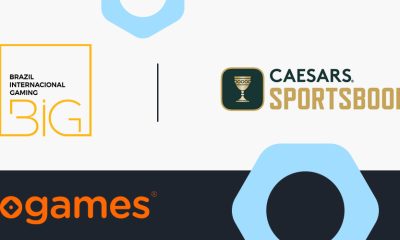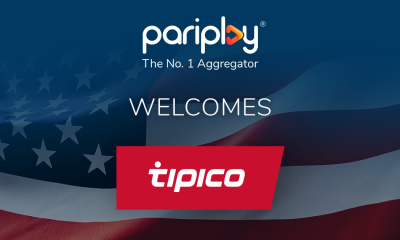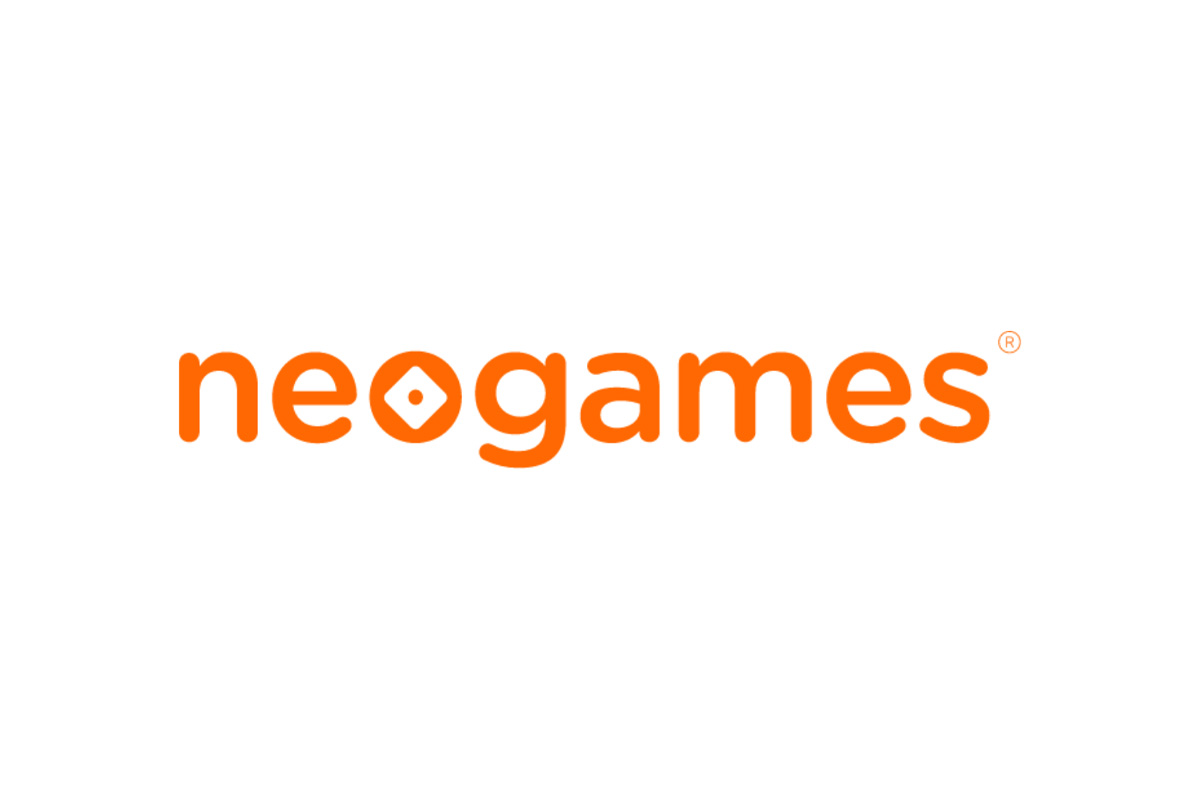Interviews
Providing the ideal fit

Online lottery platform provider NeoGames recently completed its acquisition of Aspire Global, in a deal designed to turbo-charge the growth of both parties in North America. Quincy Raven, Aspire Global’s Managing Director – US, talks to Gaming Americas about how the partnership makes perfect strategic sense, given both parties’ shared heritage and joint aspirations.
How does the acquisition change the way Aspire Global approaches the opportunity in North America?
The NeoGames transaction is completely transformative for our growth trajectory in the North American market. NeoGames and Aspire Global were previously within the same company, before NeoGames addressed what was then a niche proposition of iLottery in North America and subsequently expanded on a global basis. In parallel, Aspire Global was growing successfully in Europe, Africa, Latin America and North America – a process that is still ongoing, of course. Succinctly, within my remit here in the United States, NeoGames brings 17 state licenses to Aspire Global. That provides us with immediate opportunities in each of those states and those licenses – be it iGaming or iLottery, depending on the jurisdictional authority – will accelerate our business dramatically.
How will these competitive advantages present themselves?
When I first joined Aspire Global last summer, we were looking at the United States as a very new market from a platform viewpoint. I have spent time speaking with a wide range of people from commercial, product, and services perspectives, as well as getting involved into the detailed with regulators. From there, we have been working with our product and operational teams to ensure we were absolutely, 100% ready for the moment we deliver our entire suite of products and managed services to a US operator. In North America, it is about replicating the best practices we have implemented in other regions.
To provide a specific example, NeoGames’ partner Caesars, a key customer through their acquisition of William Hill, runs on the NeoSphere (PAM) platform. That proof of execution and scalability demonstrates exactly what we can achieve for operators here in the US and Canada. The same technology we use to support a national brand to roll out from state-to-state within a central platform can then be utilized on a localized basis. For tribal casino operators, this means they have access to platform technology that is nimble, modern and adaptable to be able to cater to local patrons or as part of a multi-state strategy.
What is the importance of the PAM being utilized by both NeoGames and Aspire?
We have been using the same PAM back-end between companies for the entirety of NeoGames’ existence. The sharing of this code and expertise presents us with a competitive advantage when talking to operators of any size. There is always a desire from operators to differentiate themselves, to find that uniqueness that resonates with their patrons in their target markets. Given the state-by-state approach to regulation we have here in the US, there are regional differences from a compliance standpoint which in some cases affect the player experience. When it comes to updating features or amending regulatory requirements within the PAM, if an operator has to address every instance in each state, rather than taking a roadmap approach which is released once and deployed across a network, that is a major advantage that we and our partners benefit from.
While sitting down with operators that use other providers and discussing exactly what our platform is capable of and how we support their brands with services, the response has been resounding, particularly when it comes to our CRM capabilities. If you look at the US market over the past year, there has been widespread realization by operators that casting the broadest net possible, with seemingly endless deposits bonuses, isn’t sustainable. Instead, player marketing focused on specific segments and offering real-time, in-app bonusing and experiences, allows the operator to attract the right profiles and retain patrons in this highly competitive market. Retention is something that Aspire has been honing for years, beginning as a B2C and now a pure-play B2B provider driving profitable growth. With our platform, the same premium product is presented to the player, backed by our CRM tools that drive sustainable long-term growth. Given the sophistication, at every player touch point, operators are able to make better informed marketing decisions.
Finally, how has the acquisition affected the way both companies operate?
The completed transaction gives us two company divisions. In total, we are a fully digital company that is iGaming, iLottery, and sportsbook, all wrapped up with Managed Services. Within our organization, we consist of two separate divisions – one with a lottery leaning, the other online gaming – that share technology. In terms of my day-to-day role, it means that I work in exactly the same way I did before, but with additional resources at my disposal.
A great example is our NeoGames operations hub in Lansing, Michigan. This operation center cover everything from customers service, VIP management, risk and fraud through the entirety of the player journey – in a country where localized talent and an understanding of our customer tendencies and preferences is priceless. In the iGaming space, for Aspire Global it means there’s already robust infrastructure in place that we will utilize as our operational hub. Interestingly, though, it was actually Aspire that originally set up the operation with NeoGames seven years ago, so it’s exciting to see how things have come around in a full circle.
Aspire Global is exhibiting at G2E Las Vegas 2022, which takes place at The Venetian Expo, from 10th to 13th October, at Stand 2032.
eSports
How Esports Companies Can Address The Confusion Around Gambling
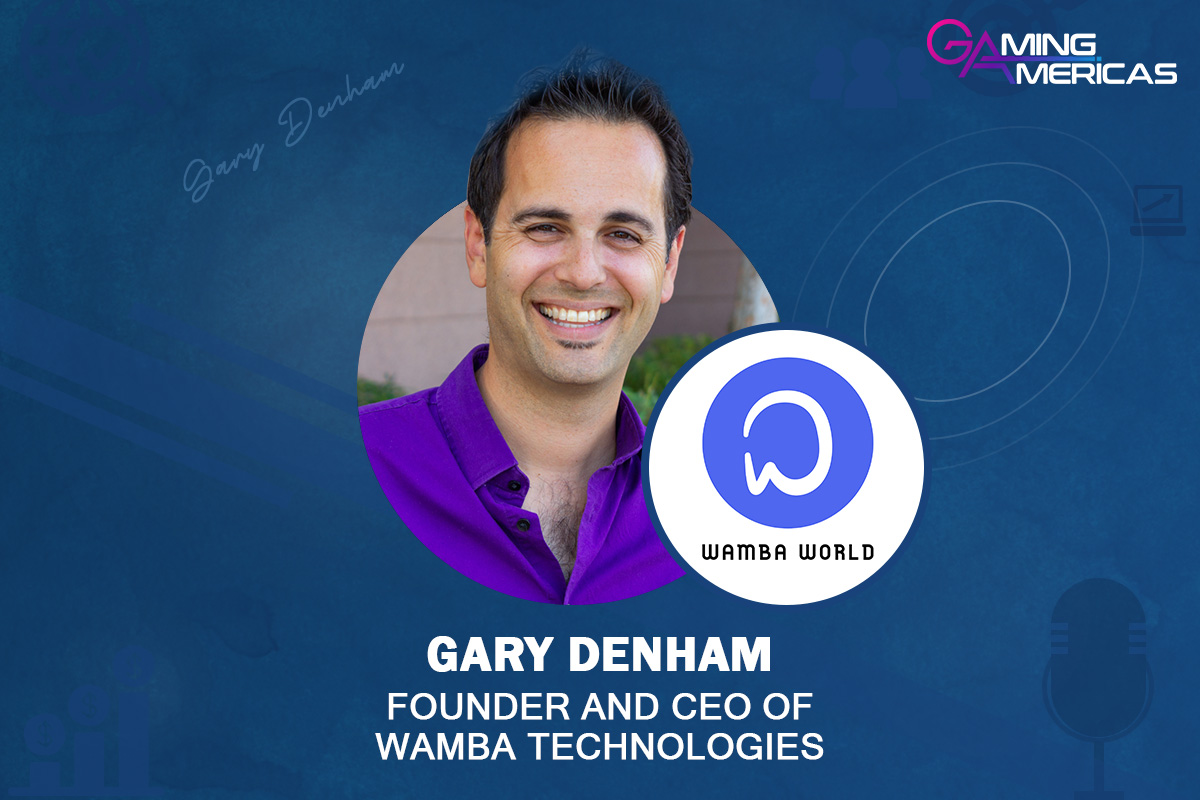
An exclusive Q&A w/ Gary Denham, Founder and CEO of Wamba Technologies and Gamer’s Oasis
What inspired you to found Wamba Technologies and develop the patented esports platform, Gamers Oasis?
My motivation was the void of wholly accessible online gaming competitions. Wamba Technologies, in conjunction with Gamers Oasis, aims to create a platform where gamers can engage in fair and constant competition, free from any suspicions of impropriety, while winning money as a result of their performance. Basically, players will be able to pay an entry fee into an online competition, compete, and win money back if they place well enough in the competition.
Could you elaborate on why the misconception of esports as a form of gambling exists despite the legal framework distinguishing skill-based competitions from games of chance?
This misperception arises from the similarities between online esports competitions and traditional gambling activities, particularly where participants are paying an entry fee and vying for monetary rewards. However, at the most basic level, it comes from industry ignorance.
Anyone who has actually looked at this or participated in esports knows this is no different than tennis, golf, NASCAR, motocross, etc. This just happens to take place online. Aside from that, there is really no difference.
In your recent Forbes article, you draw parallels between online video game competitions and the financial structure of online poker. How do you see this comparison influencing the perception of esports within the regulatory landscape?
This comparison sought to underscore the potential revenue from esports while addressing any misunderstandings regarding its classification as gambling. By framing esports within a recognizable regulatory context and emphasizing its skill-based nature, the intent was to facilitate clearer guidelines and regulations conducive to industry growth. Beyond that, I also wanted to illustrate just how much untapped financial potential exists in the industry, which I aim to capitalize on with Gamers Oasis.
How do you think the historical context of online poker and its impact on the perception of online gambling influences the current discourse surrounding esports and its legal classification?
The confusion and misconceptions stemming from the past have contributed to the ongoing debate over whether esports should be deemed a form of gambling, despite its inherent emphasis on skill. Here is where it becomes very clear: remove the internet from the equation and consider the question again.
Has anybody looked at “real life” video game competitions as “gambling” in the last 40 years (aside from Las Vegas trying to get their hands on it, and failing)? Of course not. So why would featuring the same exact competitions on the internet suddenly somehow magically make this gambling?
It doesn’t. Ergo, this is CLEARLY not gambling.
What measures do you believe are necessary to establish clear guidelines and regulations for esports, ensuring both consumer protection and industry growth?
Nothing governmental. I think where esports are concerned, regulators need to stay out of it.
Will they? Only time will tell — but we don’t regulate golf, NASCAR, tennis, or any other sports. Sure, they each have their own rulemaking bodies, but those are not governmental entities, nor should they be.
I think that to make an exception for esports would set an extremely dangerous precedent and open up all sports to such regulatory oversight. Quite frankly, the day I see the government actually make something in corporate America better, I may be willing to revisit this sentiment. Until then….
How much of the gaming population do you expect to be interested in a platform like Gamers Oasis?
With approximately 660 million actual and potential esports players globally, I expect a significant portion of the gaming population to be interested in a platform like Gamers Oasis. Hundreds of millions of players are traveling to various locations to participate in competitions already.
To give them the ability to simply access this from the convenience and comfort of their own home is something that has gone over exceedingly well in all other comparable situations which we’ve seen. Banking. Shopping. Poker. Collectibles. Multiplayer, casual gaming. Now we’ll see it with video game competition.
What can you share about monetization issues in esports and how Gamers Oasis plans to tackle the problem?
Monetization challenges in esports often stem from an attempt to mirror the traditional sports’ viewer-based model, where money is made by bringing fans out to stadiums or by encouraging them to buy merchandise. In this model, revenue comes from ad sales and sponsorships in addition to gate sales and merchandising.
While that works with traditional sports, it doesn’t translate well to esports. However, with the ease of access to gaming reaching an exponentially larger number of players than traditional sports reaches viewers (basically, not everyone can throw a baseball, but 40% of earth’s population plays video games), focusing on a player-based model that encourages everyone to participate, rather than merely making them a viewer, can produce far greater emotional attachment to the sport resulting in more participation time, more monetization opportunities in general, and ultimately, as a result, more revenue. Simply put, viewers generate some revenue for the sport, but players can be worth much much more than viewers. In video games, every viewer is a potential player, so, let’s make them players!
This is where Gamers Oasis will shine. We are developing technology that will allow players of all skill levels to compete and to know that they are engaging in fair competition. Basically, you could be a bad player, but know that you will only be competing against other bad players, giving you a real chance to win money. This is something that nobody else has seemed to be able to produce in a meaningful manner. We have a way to do this and to ensure this fair play. When anyone can win, all will play. When everyone is playing, the industry experiences exponential growth.
Looking toward the future, what do you see as the future of esports, more specifically in terms of regulatory frameworks and industry development?
One of the fundamental problems esports has had up until now is there is no universal set of guidelines. As I said before, I firmly believe that the government is not the answer.
With our patent, one of the things we intend to do is to have all parties who are licensing the patent join us in setting up core guidelines for all games which feature our technology. We see this as a sort of a start in creating that centralized entity which can help establish and enforce certain guidelines, keeping it as a consensus based entity composed of the major parties who are involved with us in these endeavors, a democratic approach of sorts, with us primarily facilitating the laying of the foundation.
What kind of a relationship do you envision between the casino industry and the esports industry?
Casinos are all about entertainment, and esports bring a whole new level of that to their customers. The possibilities are exciting in that whole new esport-themed experiences can be hosted within casinos. And as casinos seek to diversify their offerings to attract younger demographics, esports present a lucrative opportunity for engagement and revenue generation through esports betting and tournaments themselves.
I think that third-party betting should be separated from any true esports platform. A true esports platform should only have the player paying their entry fees and should not involve third parties wagering on the outcome when they are not actually involved in the competition.
This is where the casino industry comes in. The casinos can be a distinct and separate entity to facilitate those kinds of transactions, keeping them wholly separated from the platforms featuring esports.
One of the major reasons for this separation is age requirements. A true esports platform should allow kids (with parental permission) to be allowed to compete just as they do in real life. However, I feel very strongly that wagering on anything as a non-participant should have some restrictions, as it has the means to cause harm to younger, developing minds. By separating the two, we can keep the competition platforms “kid friendly” while still serving the needs of the audience that seeks the other service.
Interviews
Why is LatAm such an important market for 3 Oaks Gaming?
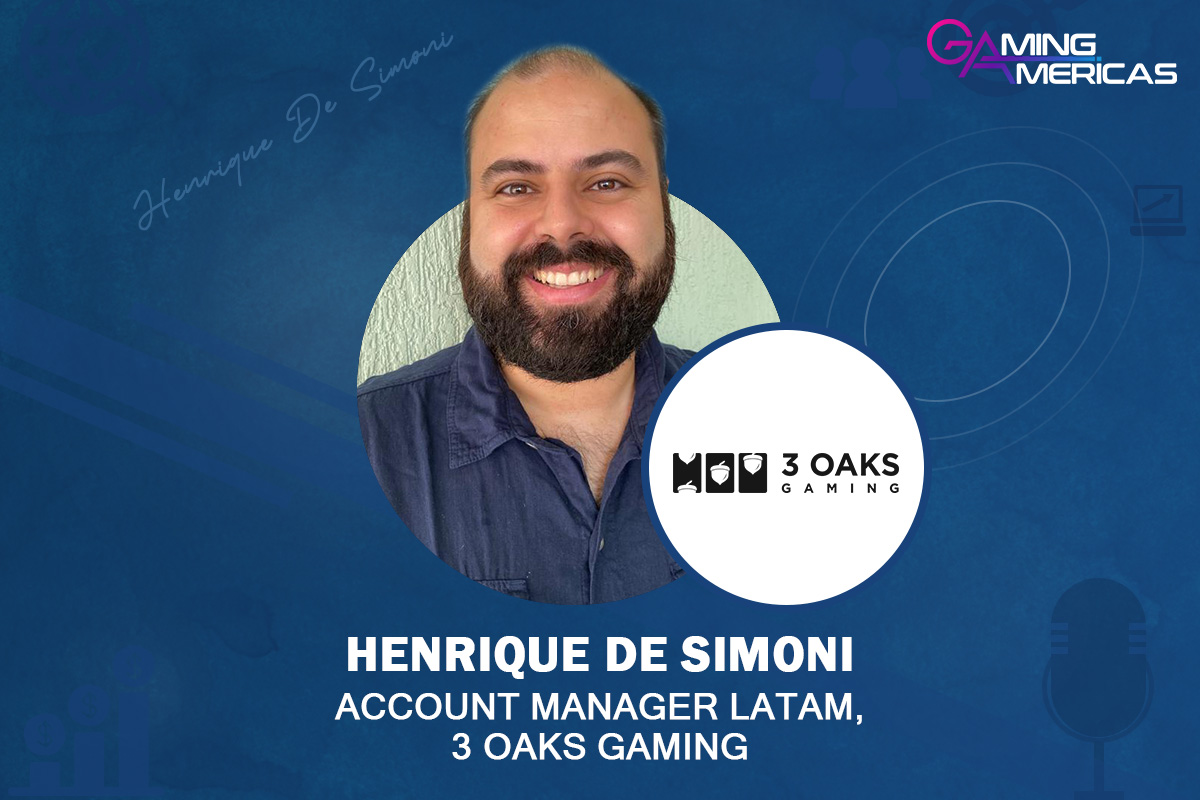
3 Oaks Gaming is beginning to establish itself across regulated European markets, but now it has a focus on gaining a footprint in the rapidly evolving Latin American region.
We spoke to 3 Oaks Gaming’s Account Manager LatAm, Henrique De Simoni, about the distributor’s plans for LatAm and the overall appeal of the region.
3 Oaks has recently signed multiple deals in LatAm. How did those deals come about and are there plans for any more partnerships in those territories?
It is fantastic to sign a range of deals across LatAm, initially in Colombia and Mexico before sealing a number of agreements in Brazil. Colombia, in particular, is now a mature jurisdiction and entering the market there first ahead of other regulated territories was something that we felt was a sensible move for us.
Luckia and BetPlay are two of Colombia’s foremost operators, with a huge network of suppliers under their remit. To sign deals with those two giants undoubtedly bolsters our reputation within the region.
We also have Bet7K and F12.bet with our portfolio in Brazil and many more operators that are almost ready to go live in the next semester.
Overall, we have connected with multiple casino platform providers, such as Vibra Solutions, Alea, Hub88 and Salsa Technology, extending the reach of our content across the continent and we are excited at what the future holds for us with these partnerships.
Why were Colombia and Mexico first on 3 Oaks’ list when entering LatAm?
Colombia and Mexico emerged as the top choices for several compelling reasons. Firstly, both countries exhibit substantial market potential, with burgeoning populations eager for new and exciting gaming experiences. Additionally, the regulatory landscapes in Colombia and Mexico have been evolving positively, offering conducive environments for the expansion of the gaming industry. This regulatory stability provides a solid foundation upon which we can build our operations and establish long-term success.
Despite Colombia’s rapid maturity within the gaming sector, our thorough analysis identified continued high potential for growth. By securing certification for our games in Colombia, we’ve positioned ourselves to capitalise on the evolving landscape and seize lucrative business opportunities.
Mexico is now the second market in terms of volume, internet betting traffic and great demographic numbers related to gambling in LatAm. This opportunity of offering casino games for Spanish speaking countries that adores sports is something that challenges us and makes the industry more competitive in terms of generating the best premium slots.
What other LatAm regions are 3 Oaks targeting over the next 12 months?
With some provinces in Argentina already regulated, such as the capital Buenos Aires, this is a key market for us as we look to expand across the continent. Argentina has shown substantial numbers in the iGaming market and can easily become the third largest country in terms of GGR.
However, we are also looking at other regions in LatAm as we try and finalise further partnerships here so watch this space as our journey continues!
With Brazil on the cusp of regulation, how do you think the space will pan out over the next 12 months and what plans does 3 Oaks have for the region?
It’s no secret that Brazil has been our number one target and we are thrilled to be live in the jurisdiction through a number of agreements already. Certain analysts predict that the market is expected to be worth over US$3 billion by 2028, which is an astonishing prediction, but also an incredibly exciting one.
We will see an increase of mature companies trying to expand in Brazil and can expect to reach the biggest operators with our approach and outstanding customer experience. We have premium slots, a team that believes in the market and everything to make our brand visible for our Brazilian customers.
These numbers ensure Brazil will be the jewel in Latin America’s crown once it fully regulates, and thanks to the deals we have in place, we feel we are well positioned for future growth when regulation finally kicks in.
Interviews
“Francisco Leiva: Forging the Future of the Gaming Industry in Chile”
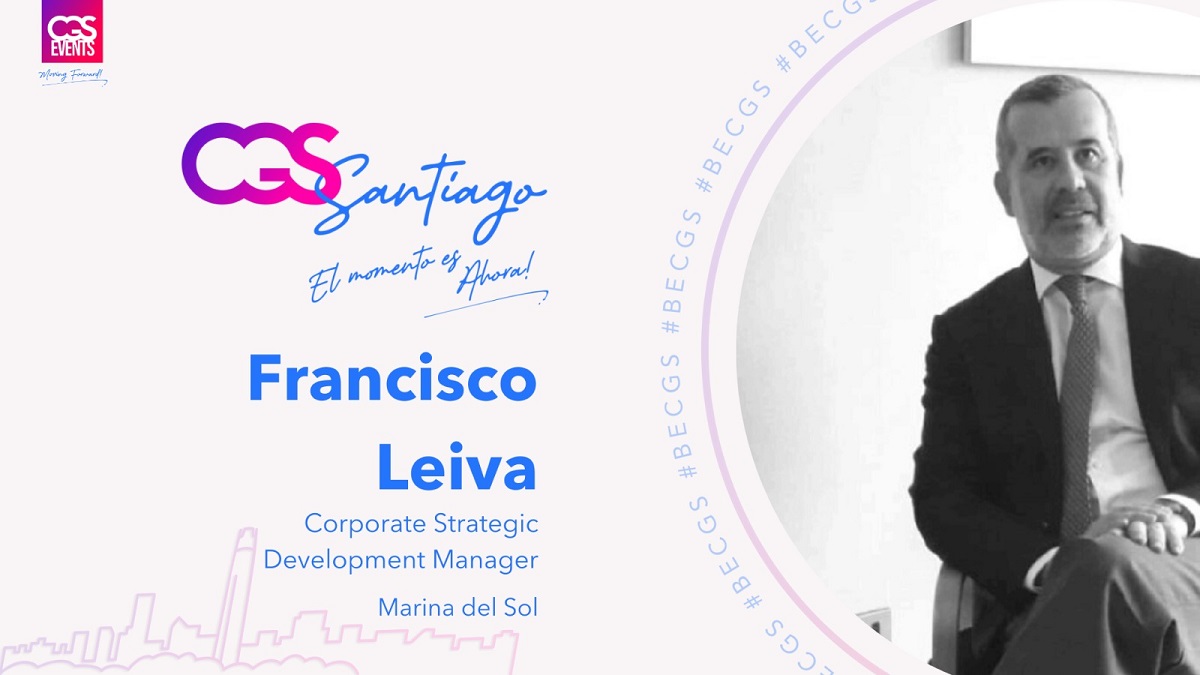
In the vibrant gaming industry in Chile, Francisco Leiva’s figure emerges as a key reference. A trained industrial civil engineer, his professional journey spans 35 years, from his beginnings in the public sector to his prominent role as Superintendent of Casinos, and more recently as Corporate Manager of Strategic Development at Marina del Sol. His entry into this industry, marked by challenges and significant achievements, reflects his commitment to progress and innovation. In this interview, Francisco shares his vision, experience, and accumulated wisdom over the years.
Could you tell us a bit about your career, professional trajectory, and path to where you are today; What motivated you to enter the Gaming industry?
I am an industrial civil engineer, and my career started in the public sector 35 years ago. Initially, I worked at the Ministry of Health and then at the Ministry of Finance, where I was involved in the drafting and legislative processing of various bills, such as the anti-money laundering law and the gaming casinos law.
Given my work in the legislative process of the gaming casinos bill, after its enactment in February 2005, President Ricardo Lagos appointed me as the first Superintendent of Casinos to implement the law. It was a significant professional and personal challenge as it involved bringing an industry that was far behind similar developed countries as Chile up to date.
During your time as Superintendent of Casinos in Chile, what were the most challenging tasks you undertook, and what would you say was your legacy in the gaming industry?
The main challenge was implementing the new gaming casinos law, which involved setting up the Superintendency, hiring staff, and preparing all conditions for private investors to apply for new casino operation permits. This led to 52 projects being submitted for the 18 available casino permits, with investments exceeding US$ 755 million at the time. Foreign investment accounted for 55%, and national investment for 45%.
The result was the construction of 18 new casinos along with complementary facilities such as hotels, convention centers, restaurants, and other leisure facilities that turned these areas into tourist attractions in the cities where they were built.
Undoubtedly, the main challenge was meeting the tender requirements within a tight timeframe. We managed to have a competitive process with operators from around the world, radically changing Chile’s gaming casinos industry.
The legacy was transforming the gaming casinos industry from seven municipal casinos to a modern industry with 24 top-level casinos and facilities.
What significant lessons have you learned throughout your career? And what message would you like to leave for future generations?
One lesson is that ambitious goals can only be achieved through dedication and by building motivated teams with clear objectives. It’s impossible to do it alone in tasks like these.
I believe the message is to work with honesty, dedication, and without losing sight of the task entrusted to you.
Knowing you personally, not just professionally, what activity inspires you or helps you achieve balance in your life?
Since I was a child, I have been passionate about playing tennis, and I have tried to maintain this passion even as a senior player. In this sense, I think engaging in sports helps maintain a healthy mind and body, which is essential to counter the stress that comes with demanding and complex work.
Similarly, one cannot neglect family life, as they are the ones who will ultimately support you in difficult times.
In summary, the only way, although not easy, is to harmonize work demands with a balanced life.
Finally, what is your opinion on hosting such an important international event in your country? And in a way, being one of the hosts to such important international personalities.
It is very important for the country to host such events that allow interaction among different actors in the gaming industry. It facilitates the exchange of experiences and networking, allowing the industry to continue developing. It is also important for public authorities, especially regulatory ones, to participate so they can understand the industry’s reality and see where the industry is heading given technological and cultural changes.
Francisco Leiva’s story in the gaming industry in Chile is an inspiring testimony of determination and success. From his crucial role in implementing the gaming casinos law to his contribution to the industry’s growth and modernization, his legacy endures as a beacon of positive change. Beyond his professional achievements, Francisco reminds us of the importance of balancing work and personal life, as well as the need to stay focused on values such as honesty and dedication. His optimism and commitment to the future of the gaming industry in Chile are a reminder that success is achieved through effort, teamwork, and a clear vision.
-
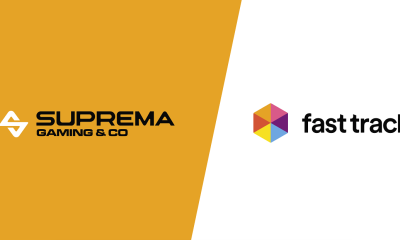
 Latest News3 days ago
Latest News3 days agoFast Track Secures Landmark Deal with Suprema Group – Setting a New Standard in the Brazilian iGaming Market
-
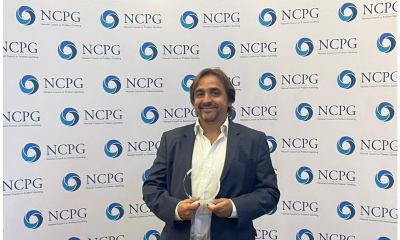
 Gambling in the USA5 days ago
Gambling in the USA5 days agoBetBlocker Recognised for Outstanding Contribution to the Prevention of Gambling Harm at NCPG Awards 2024
-

 Latest News3 days ago
Latest News3 days agoLight & Wonder Expands Presence in Oregon with Additional Placements of KASCADA Dual Screen Multi-Games
-

 Industry News4 days ago
Industry News4 days agoPenn Entertainment to Lay Off About 100 Employees
-

 Latest News3 days ago
Latest News3 days agoRakin’ Bacon Sahara® Launches Exclusively in New Jersey at Hard Rock Hotel & Casino Atlantic City and online at Hard Rock Bet
-

 partnerships3 days ago
partnerships3 days agoGGPoker & Triton Poker Offer High-Roller And Super-High-Roller Events At 2024 WSOP Paradise
-

 Latest News3 days ago
Latest News3 days agobet365 Announces Official Launch in Pennsylvania
-

 Daily Fantasy Sports5 days ago
Daily Fantasy Sports5 days agoDraftKings Becomes Official Partner of the WNBA





